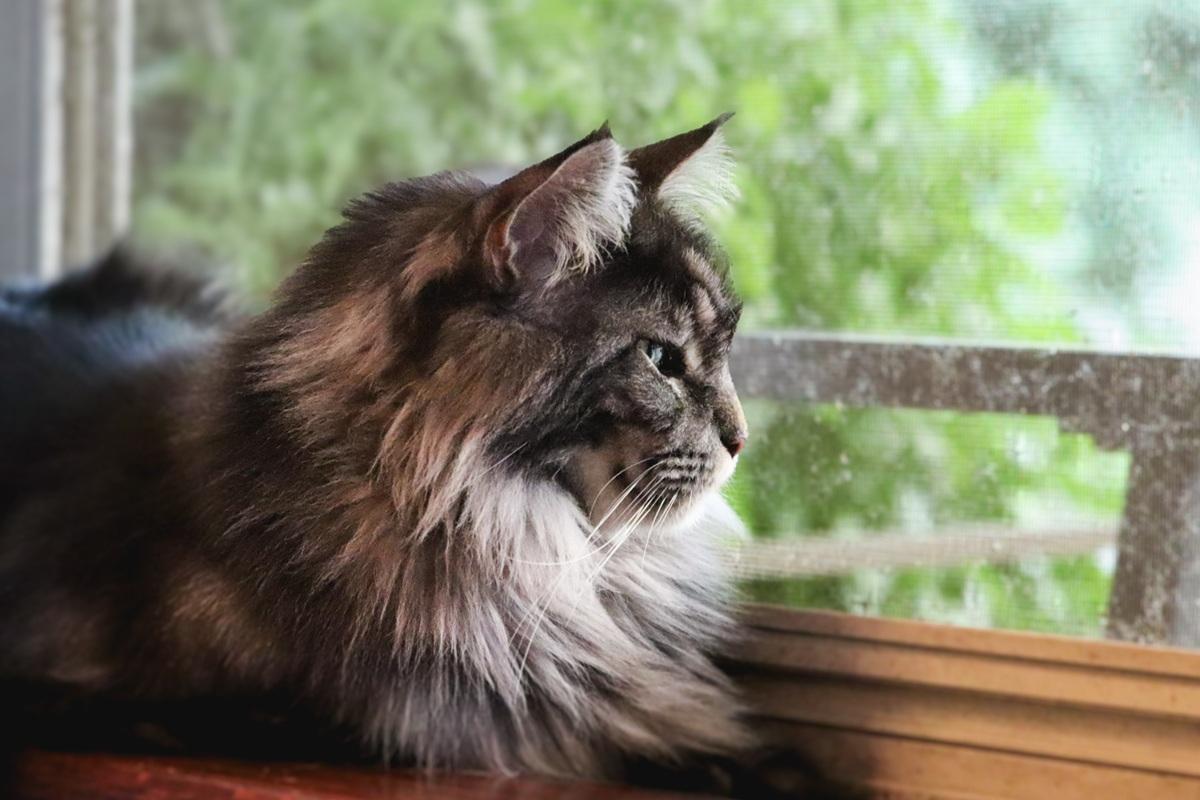
Kirsten McCarthy / Cats.com
For vegans and others with misgivings about the livestock industry, caring for a carnivorous animal comes with a serious moral dilemma. Some say vegan cat food is an ethical solution. But is it fair to feed a carnivore a plant-based diet?
Instead of defaulting to the tired argument that vegan cat food is abusive, I was determined to give a better answer. I wanted to know the truth about vegan cat food.
In order to answer the questions vegan cat guardians are asking, I tried to understand the way they think. I watched What the Health, spent hours reading comment threads on vegan sites, spoke on the phone with a representative of Evolution vegan pet food, exchanged emails with ethical vegans who have cats, and studied the body of research on vegan and vegetarian pet food.
Here’s What I Learned.
Over 70 billion land animals are killed for food every year—over nine animals for every human on the planet. That number doesn’t include the billions of fish harvested from the globe’s oceans and farms. In the United States, dogs and cats account for about 25% of America’s animal production, contributing to the country’s use of land, fuel, and water, all the while driving up carbon dioxide emissions.
For some cat guardians, this means a moral dilemma comes mixed into every meal of traditional meat-based cat food. Cats are natural carnivores, but being a domesticated carnivore means contributing to mass industrial slaughter. Yet taking away a carnivore’s ability to eat meat is also oppressive.
Can Cats Be Vegan or Vegetarian?
Until the first cat decides to reject his carnivorous nature, no.
Cats can’t be vegan. And while cats can and do appear to thrive on properly supplemented plant-based diets, that doesn’t change the fact that cats are carnivores.
Evidence of the feline need for meat is apparent in almost every aspect of their physiology.
Cats’ Jaws Are Optimized for Meat and Bones, Not Plants.
Instead of moving their jaws up, down, and side to side, cats are only capable of up-and-down jaw motion. Their powerful jaws and jagged teeth are excellent at ripping meat and crunching bones, but they’re no match for foods meant to be chewed.
Additionally, cats don’t produce salivary amylase, a digestive enzyme secreted in the saliva and used to break down starches.
Compared to Non-Carnivores, Cats Have a Low Body-To-Digestive Tract Ratio.

Kirsten McCarthy / Cats.com
Because vegetation is difficult to digest, plant-eating animals have complex, fermentation-driven digestive processes. In contrast, carnivores have short, simple digestive systems. Food moves rapidly through a carnivore’s GI tract and, because of its low fiber content, undergoes minimal fermentation.
A cow’s digestive tract is roughly 30 times the length of their body. A human’s is about 10 times their body length. A dog’s digestive tract is about six times the length of their body. A cat’s body-to-digestive tract ratio is about 1:4—one of the lowest in the animal world and consistent with their status as true carnivores.
Cats need certain nutrients only found naturally in raw meat.
Taurine
Compared to non-carnivorous animals, cats have a high requirement for protein. As any vegan knows well, meat is far from the only source of protein. But remember that not all protein is the same. Protein is made up of amino acids, all of which have unique characteristics and are metabolized differently.
Cats require a variety of amino acids, including the sulfonic acid taurine. Unlike dogs and people, who can synthesize taurine from the plant-sourced amino acid, cysteine, cats need preformed taurine. In nature, taurine is found in raw meat, especially raw organs.
Because some taurine is destroyed during cooking, meat-based cat foods are supplemented with taurine, but plant-based foods rely entirely on synthetic versions of the amino acid.
Arachidonic Acid
Cats need high amounts of arachidonic acid, a fatty acid that’s only present in animal fat. This fatty acid supports the immune system, skin, coat, digestion, and reproductive health. Plants simply don’t produce arachidonic acid. Instead, vegan foods must contain a synthetic variety of arachidonic acid.
EPA and DHA
Both plants and animals contain omega-3 fatty acids, a group of fats with the ability to reduce triglycerides, improve joint health, reduce inflammation, and aid brain and eye development.
Though both plants and animals contain omega-3s, plants primarily contain ALA (alpha-linolenic acid), which cats can’t utilize. Sources of ALA include flaxseeds, soybean oil, chia seeds, and tofu. Because their bodies lack the metabolic pathways to convert ALA to EPA and DHA, cats need them in their preformed state. Preformed EPA and DHA are present in salmon, seabass, krill, and other sea animals—plus some varieties of algae.
Vitamin A
While omnivorous and herbivorous animals can biosynthesize vitamin A from carotenoids found in plants, cats need preformed vitamin A from animal flesh. If they can’t get it from animal ingredients, a synthetic form of vitamin A is necessary.
Feline Metabolism Is Optimized for Gluconeogenesis
Although cats can metabolize carbohydrates, they have certain metabolic limitations as obligate carnivores. Metabolically, a healthy cat is a little bit like a person with diabetes. Cats lack the hepatic glucokinase pathway, which would result in diabetes in a non-carnivorous animal. Healthy cats also show some insulin resistance, a risk factor for diabetes in non-carnivorous animals.
Instead of using carbohydrates, cats primarily synthesize glucose from protein via hepatic gluconeogenesis. If their high protein requirements—approximately two to three times higher than those of a typical dog—aren’t satisfied, cats will utilize the amino acids in their own muscle.
To prevent muscle wasting and overall decline, cats require at least 2.3 grams of protein per pound of body weight. While they can get this protein from plant sources, those plant sources won’t provide the amino acid profile cats need.
Is Vegan Cat Food Safe?
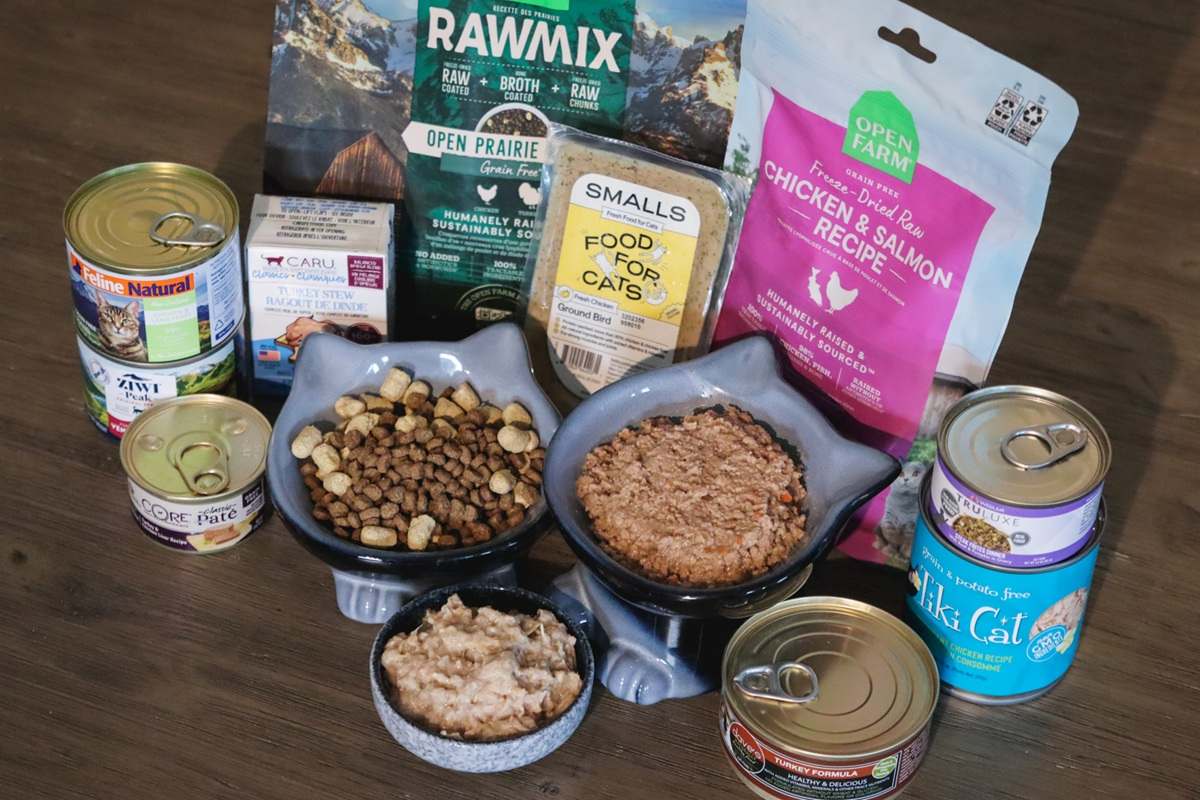
Kirsten McCarthy / Cats.com
Having learned all this about feline dietary needs, it’s clear that vegan cat food isn’t natural. But is it safe? Let’s review the research.
A study in 2015 found that of 24 canned and dry vegetarian foods for dogs and cats, 25% failed to meet the AAFCO minimum nutrient requirements for pet food. When asked if they could provide evidence verifying the nutritional adequacy of their products, five out of twelve companies failed to respond.
Those who did gave varied responses. Though all respondents said that their foods’ nutritional completeness was verified by independent testing, none of them provided details or the results of that independent lab testing.
Feeding Studies
In one study, a group of fifteen cats ate vegan diets for periods of time ranging from six months to over six years. According to blood testing and clinical examinations, almost all of them seemed healthy, happy, and vibrant, though a few were frightened or aggressive. That’s to be expected—some cats just don’t like going to the vet.
Blood test results were normal in most areas, but the cats had significantly lower folic acid values compared to cats eating a carnivorous diet. None of them had below-normal levels of protein, iron, or vitamin B12.
Another study conducted in 2006 followed the health of 34 vegetarian-fed cats for at least one year. The researchers measured 17 of the vegetarian cats’ blood taurine and vitamin B12 levels, finding that most of the cats had normal levels of both. The three cats with abnormal levels had been partially maintained on table scraps in addition to their plant-based diet.
Vegan cat food tends to be alkaline, increasing your cat’s risk of urinary tract disease.
Compared to meat, plants are alkaline. This contributes to an overly high urinary tract pH. An alkaline environment is friendly to bacteria, increasing your cat’s chance of developing urinary tract infections. An alkaline urinary pH also lends itself well to the development of struvite crystals.
Even if it does appear to be nutritionally complete and balanced, feeding your cat vegan food demands great faith in the human ability to parse nutrition.
The further that you get from a cat’s natural diet, the more you have to rely on human intelligence to make the food nutritionally complete and balanced. A diet of shrews, mice, birds, lizards, and bugs requires virtually zero nutritional supplementation. Homemade raw diets need a little boost from synthetic additives. Most cooked foods demand a moderate amount. Vegan cat food gets its nutritional adequacy almost completely from human-made additives.
Vegan cat food is so far removed from a species-appropriate carnivore’s diet that it’s akin to you living off of lettuce sprinkled with synthetic vitamins, minerals, and amino acids.
Dr. Jennifer Coates, says “While it may be possible for a veterinary nutritionist to design a “vegan” recipe for cats that wouldn’t lead to disease, it would have to contain large amounts of nutritional supplements, some of which would probably have animal origins, raising the question of whether that diet would truly be vegan. Even more importantly, the goal in feeding pets is not simply to avoid diet-related illness but to promote optimal health and well-being. I sincerely doubt this is possible with vegan cat food.”
Even if you believe that people are capable of replicating the nuances of natural food, the current selection of vegan food is wildly varied and hard to evaluate. Every vegan diet is slightly different—some don’t contain essential nutrients—and there’s limited research on each of these products.
A Plant-Based Diet vs. a Diet of Meat, Organs, and Bones?
If your cat were let loose into a field of corn, soy, and carrots, would he rush out and start digging carrots out of the earth and using his powerful jaws to shave corn kernels off the cob? Now imagine if that field were filled with mice, voles, and birds. Do you think your cat might show a little more interest?
In an article published on the Food Revolution Network blog, Ocean Robbins shares an anecdote about trying to convert his childhood cats, Brownie and Princess, to a plant-based diet. After three days of turning down meals made with chickpeas, zucchini, rice, and toasted yeast, the kitties took things into their own claws and caught a rabbit for breakfast.
Ocean concludes, “We caved. The Cats won. And from that day to the end of their 15+ year-long lives, they each got their share of organic, meat-based cat food.”
In Conclusion, You Can Feed Your Cat a Vegan Diet, but at a Cost.
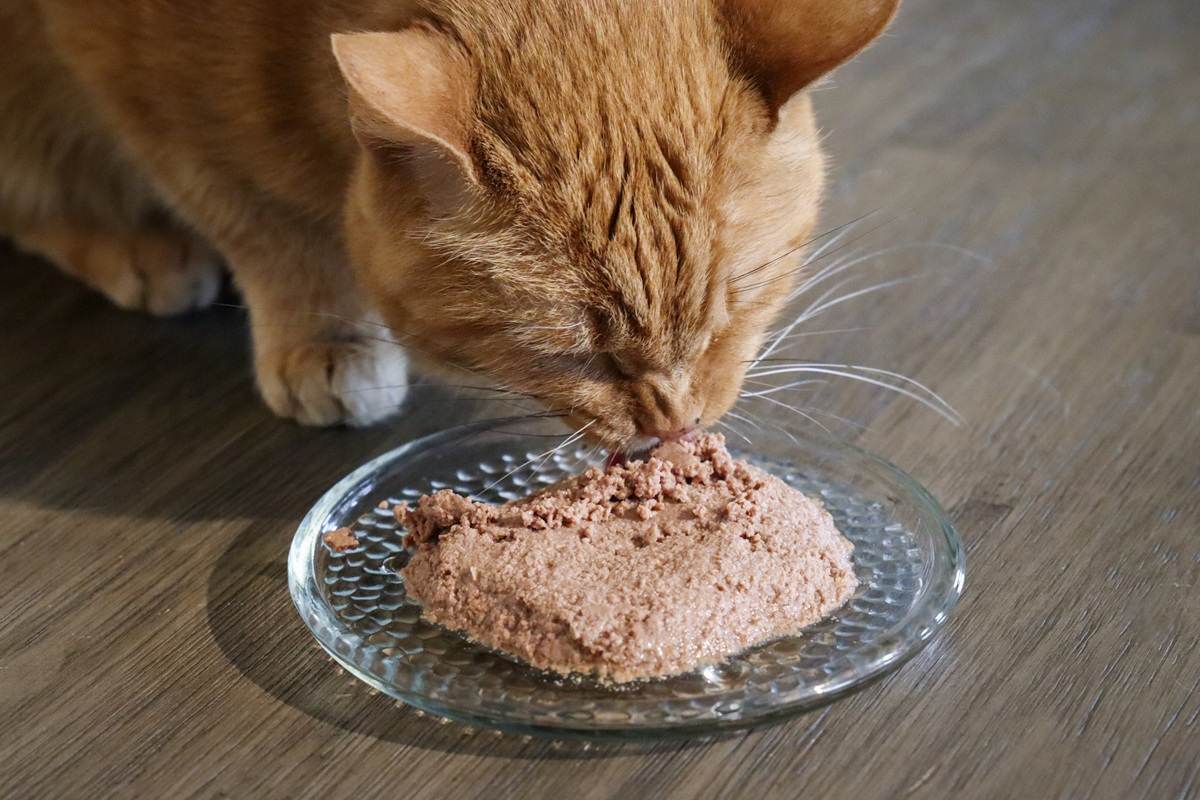
Kirsten McCarthy / Cats.com
Ocean’s story brings home the point that kept resounding in my head as I researched the world of vegan cat food. Vegan cat food isn’t natural. It’s not normal. Cats will always want to kill and eat other animals. And yet—our cats aren’t natural.
Nothing about their existence is. Domesticated cats live in human homes, get human-created advantages over other animals, and contribute to a human-created system of exploitation. And no, ordinary non-vegan cat food isn’t much more natural than a plant-based diet.
Cats don’t eat beef, chicken, turkey, or tuna in the wild, yet they’re the basis of most cat foods. Just as vegan foods demand a slew of supplements to provide the nutrition cats need, so do cooked cat foods. And most non-vegan dry foods are loaded with corn, wheat, and soy.
If you’re someone who wants to do the best for animals—all animals, including carnivorous pets—then you have to find a compromise.
It’s not perfect, but homemade cat food may be an ethical alternative to both vegan cat food and traditional commercial food. If you do it right, you may be able to make your own cat food without contributing to the meat and dairy industry.
It’s easier to control sourcing and ensure that the meat ingredients are ethically sourced if you do the sourcing yourself and make your own cat food. Depending on where you stand on the issue of meat consumption, ethical meat sourcing may entail sharing with hunters, salvaging meat that would otherwise go to waste, or perhaps even allowing your cat to hunt on his own.
Of course, this isn’t a complete solution to the vegan cat guardian’s dilemma. During my research, it’s become apparent that the only morally consistent way to solve this problem is to end the institution of cat ownership. But that’s unrealistic. If you have a cat in your house right now, you’ll have to make a choice.
You only have two options. One is to disrespect your cat’s needs and desires by feeding him a diet that’s morally meaningful to you and perhaps other animals but utterly unnatural to a carnivore. The other is to, if even in an indirect way, kill Peter the Chicken to feed Paul the Cat.
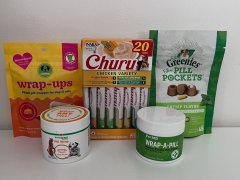

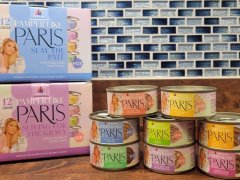
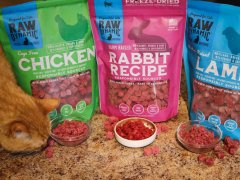

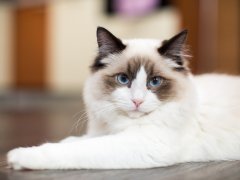
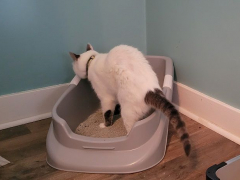
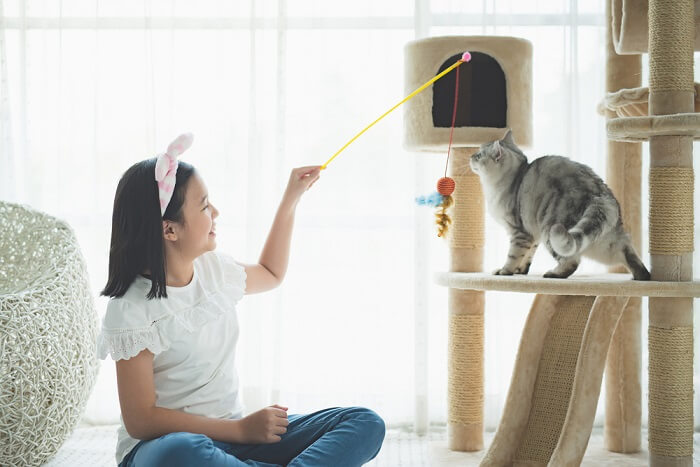
I don’t find this article to be entirely consistent. There’s some excellent information here. But to say cats cannot eat a vegan diet because they are carnivores, then to present data that cats can be entirely healthy on a vegan diet is contradictory. Seems like there’s too much emphasis on the anatomy of the cat rather than the results of the studies. Therefore, an accurate conclusion should be along the lines of, “yes, they can be safe and healthy on a vegan diet but only with strict disciplined supplementation”.
You make incorrect claims in this article! I hope you go back and update this.
What you give as a conclusion is invalidated (I can argue) by properly ‘preparing’ a food for cat consumption. All of these details (on cat biology) are relevant for that, but you rely on a strawperson conception of what ‘food’ is here; as if we can’t prepare a plant-based substrate that has a similar digestion-profile to meat. No one ‘means’ sticking grass in front of your cat and thinking ‘that is enough for it.’
When we want to ensure absorption of certain nutrients and measure things like bioavailability, you take for granted that ‘flesh’ is fine, but many animal-based fleshes might differ, and you don’t have the cats’ well-being in mind here or take care to actually increase/benefit that meal-making process, besides you wanting to lazily ‘feed and forget’ something with an archaic and harmful diet plan that is not mindful of actually benefitting those animals.
And don’t lie about animals please; many cats don’t kill or make overt attempts to kill things and instead interact ‘playfully’ because they understand life-signs and don’t want to harm something, but want to play with it.
I completely agree, Robert. I just wrote something similar! There were some inconsistencies regarding the conclusion, after presenting data that points to vegan diet for cats being safe with proper supplementation.
Here is actual data on this topic:
https://doi.org/10.3390/vetsci10010052
https://journals.plos.org/plosone/article?id=10.1371/journal.pone.0284132
https://bmcvetres.biomedcentral.com/articles/10.1186/s12917-021-02754-8
https://www.veterinaria.org/index.php/REDVET/article/view/92
And here are screenshots of many people feeding their cats plant-based over a long period of time: https://photos.app.goo.gl/o9p8HeRFajyxjQNA8
Nice opinion piece without any actual data.
There’s plenty of actual data on this topic.
But sure, a story of a random couple feeding their cat vegetables but then changing their minds when the cat hunted is all the evidence you need, not actual scientific health outcome data!
The data shows that cats can survive and thrive on a plant-based diet if it is nutritionally complete and properly formulated. Cats need nutrients, not ingredients, and commercially available vegan cat foods exist.
Omg… cats are carnivores. You wouldn’t feed rabbits meat so why force a cat to eat a vegan diet. Please if your concern is giving your cat meat, just get another type of pet like a rabbit. I used to work at a vegan store, and they did this to the cats they got from the shelter. The poor thing had to go around hunting mice at night to survive. Please don’t do this. Be a kind human being and don’t impose this on your cat.
Thank you for researching so well.
I started searching Vegan food for my cat because I just heard that some cat or dog foods are made from cats and dogs meat…. Is it true that pet food companies are using dead dogs and cats for ingredients? If it’s true which means, my cat is eating another cats (or dogs)!??? I hope this information is not true. Do you know anything about this!?
Hey there. I haven’t seen any good evidence that pet food companies are sourcing from animal shelters or other sources of cat and dog meat. I did see one DNA test that identified a trace of “dog” meat in pet food, but these tests are rather unreliable, and the amount was extremely small. So I wouldn’t give it too much credence. However, we can confidently assume that traces of other species, like horses, sheep, and other unlabeled animals may show up in pet food that contains animal by-products or vaguely-named meats. Because this is sometimes associated with lower ingredient quality and makes things more difficult for cats with food sensitivities, I’d recommend opting for foods that contain clearly-labeled meats like “chicken”, “turkey”, and “beef” instead. Hope this helps!
Vegan fed cat blood test results. Alles fein. Good.
January 2022.
4.5 year old female spayed mostly 99 percent indoors cat, fed kibble, drinks water, fed uk Benevo vegan cat food mostly earlier often Italian Ami and home made Compassion Circle recipes for vegan cats using vegecat supplements powder in the home made.
Blood tested at Animal Trust Ellesmere Port, Chester.
https://www.animaltrust.org.uk/clinics/vets-in-ellesmere-port/
The science…
http://sustainablepetfood.info/
Some of The suppliers…
https://compassioncircle.com/
Evolution in the USA founding producer…
https://petfoodshop.com/
Benevo producer in the UK…
https://www.petbusinessworld.co.uk/news/feed/vegan-pet-food-firm-presented-with-queen-s-award
Like Little Tyke the lioness in the USA who refused to eat meat…famous…didn’t need to…
https://www.facebook.com/veganlionesslittletyke/
Blog of vegan cat Mimi-Midnight.
http://vegan-information.com/Vegan_Rescue_Kitten_New_Little_Tyke_Midnight_Hannukah_Capricorn.html
Hundreds of examples of healthy thriving vegan fed cats….
http://vegan-information.com/Vegan_Cats_List_Examples.html
Facebook page…
https://www.facebook.com/vegancats/
Hey there “We’re All About Cats” folks!
I’m just thinking a lot about my urinary cats that l have eating the Royal Canin UR diet. Often times the reviews from customers on your site are so scary to the health effects that their cats have suffered!!!
I know it’s recommended highly to have them just on wet meat diets, but l don’t think l can afford that.
I have 6 cats total. All were originally feral. Now 4 are indoor. One just couldn’t acclimate inside, so she has one of her ‘brothers’ with her. He’s a UR boy that l can’t observe how he’s doing with his diet outside.
Is there absolutely no healthy dry cat food for UR cats? I do give them all a little canned meat, twice a day, mixed with a couple of tablespoons of water; just to better help their systems hopefully!
Anyways, I’d sure love to hear from you directly! I Love all your articles and staff dedication to cats !!
Now the 2 elderly cats have tested positive for stage 2 kidney disease and early thyroid disease. My vet prescribes prescription food once again! That would mean 4 out of 6 cats on prescription foods!
Wow this is a really thought provoking article! my cat definitely inspired me to eat more meat because I was mostly vegetarian before. Since meeting my cat I started eating more poultry, eggs, seafood, some meat by-products like cartilage, tripe etc. I fed my cat his third whole bird the other day he loved it! Scarfed the whole thing! What about you Mallory which types of meat do you and your cats enjoy?
Hey there! It’s great to see you here. That’s awesome. What kind of bird did you feed him?
As for me, having a cat hasn’t really inspired me to eat more meat, but I do like to share with Wessie and Forest when my family does eat meat-based dishes. We have pretty standard American fare—almost exclusively muscle meat from chicken, turkey, beef, and pork, along with occasional seafood. Wessie and Forest will get some raw poultry organs when they’re being prepared. Wessie always joins evening meals and asks for scraps, so we remove the seasonings and will give him some of the meat. They also like getting some fresh shrimp and fish.
Meat by-products are potentially high quality protein sources, using parts of animals that humans generally prefer to avoid, but that are beneficial to the cat. Clearly there are a lot of unknowns, but it’s still meat in some form. It is not hard to choose products with meat by products rather than any named whole meats. I would add to this that named organ meats are borderline by products, meaning that more of them are available than humans want to eat. Giblets, liver, tripe, hearts, kidney, lung, etc. tend to make Americans woozy but are great for the kitty and letting them go to waste has a different set of ethical concerns.
It seems pretty obvious that all those by-products are the side effect of the human-consumption meat industry, which vegans are not going to stop simply by abstaining from the product.
Until the human-consumption meat industry is drastically reduced, meat by-products are really not contributing to the problem. If I am an ethical vegan, at least it seems logical and more respectful to use the whole sacrificed animal rather than wasting parts of it
I suppose another option is to let your cat go outside and hunt rats or chipmunks as nature intended, if you are in an environment where that’s feasible. It’s probably more ethical than starving them of necessary nutrition.
I have seen stories about humans starving their own babies, trying to feed them soy milk (not soy formula, soy MILK) because they are vegan. Babies need animal (if not human) sourced milk. Grown up humans don’t. Cats need at least some meat in their diet. You accept the obligation to properly care for them and provide it, or you don’t get to have a cat. Sorry.
I fed my last cat on Amicat and it lived until it was 19 yo without a single visit to the vet beyond yealy check-ups. She was sprightly and happy until the end. I’ve seen a shift in cat food to talk more about fibre, pre/probiotics, healthy vitamins from fruit and veggie etc. As with all pet food, there is a vast array of quality and playing with language. There is also a very aggressive resistance to veganism in culture, even in a world of plant-vased diets, that is almost fever pitch in the vat nutrition community. Can a cat be vegan? no. Can a cat be extremely healthy on vegan cat food that is correctly manufactured? Absolutely. Anyone that says otherwise just has an agenda and is not being objective.
Great article!!! I worked for a cat rescue for 10 yrs then married my veterinarian! I no longer have space to foster cat/kittens but have a gaggle of my own cats to feed. …oh and husband & I are both vegans. I have been painfully aware of my footprint having these animals…on the other end someone else is dying. I totally get the science and evolution behind true carnivores . I was getting totally fed up with the zillions of cans (I consider dry food super unhealthy for cats) of catfood… questionable ingredients and $$$$! I bit the bullet and have started making my own catfood …yes…buying the best meats I can practically afford and making enough to last 2 wks at a time- frozen. It was super hard the first few times…my kitchen looked like a surgical room with drapes everywhere…yuck! I have gotten a bit better with it but still dislike the whole event but love my cats. I get to hear horror stories from my husband of vegan cats so know that isn’t a road I will travel. In a perfect world….which it sure is not…things might be different. I’m probably the only vegan that knows their butcher but his first name!
I feed both homemade raw cat food and a high quality dry food. I try to buy only organic meat from ethically raised sources. I have one cat that eats only a small amount of his wet food so I feel I need to supplement with a little dry food. I don’t like dry food partially because they all contain starches that are hard to digest but I hope that my compromise is sufficiently healthy.
Hi Charles,
Thanks for your comment! Sounds like you have a healthy feeding plan. Kibble addicts can be tough to reform, but if yours is taking in some top-quality raw food in addition to the crunchy stuff, he’s doing better than most.
– Mallory